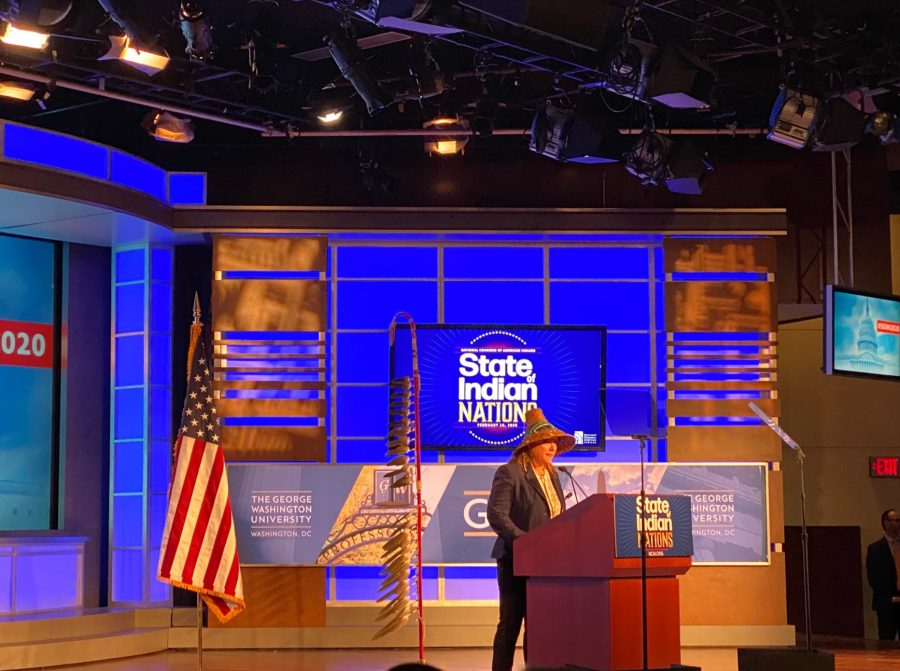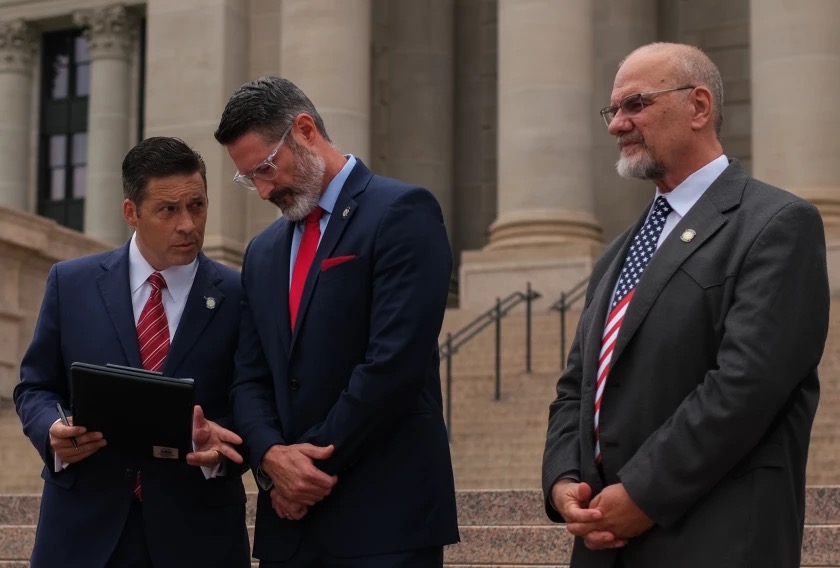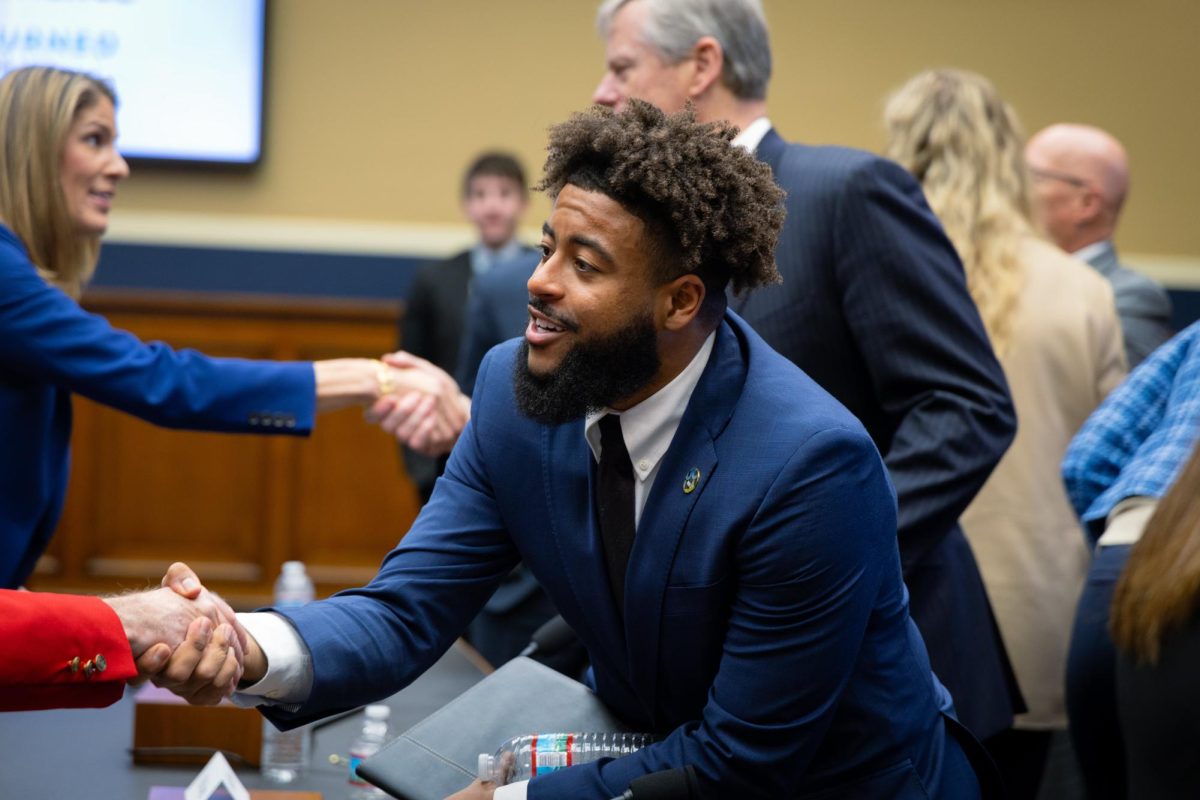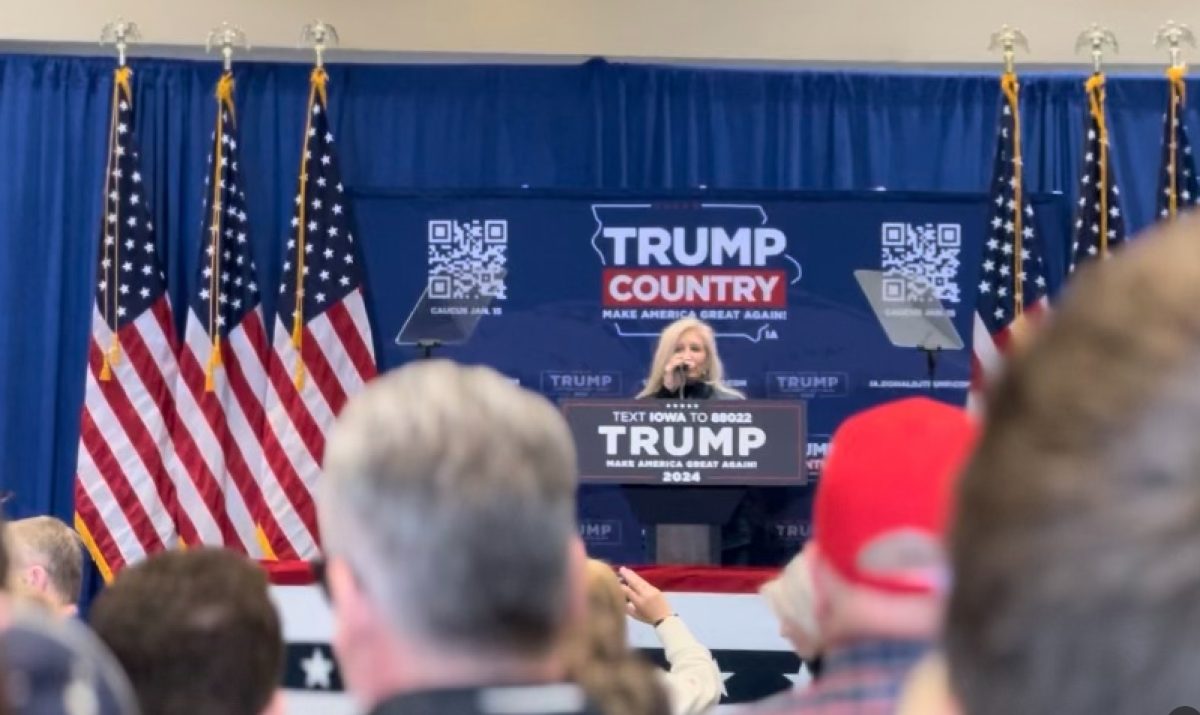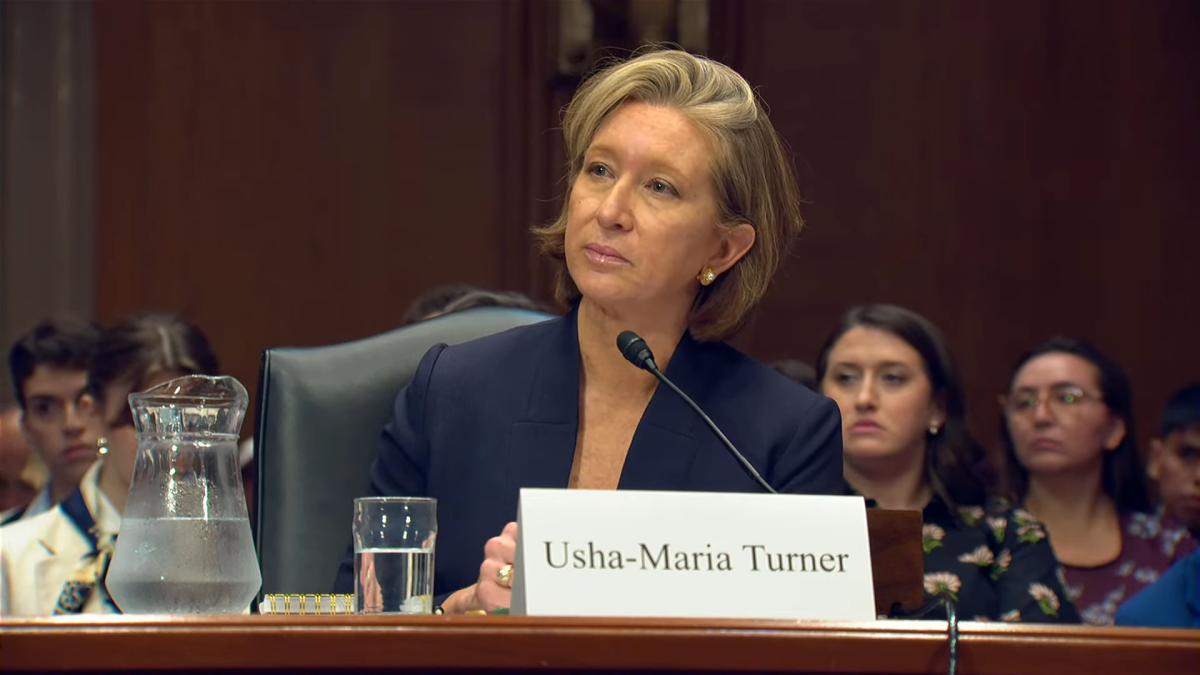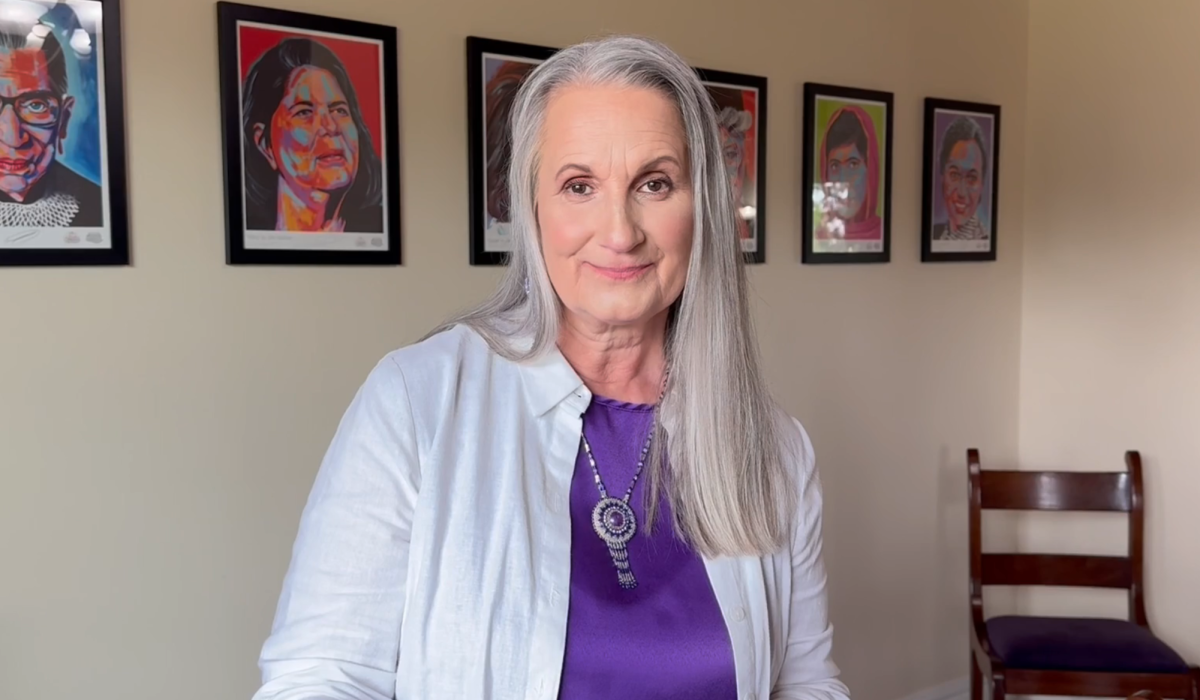Photo by Hogan Gore
WASHINGTON — Here’s a look at our stories in and around Washington this week:
Tribe Officials Discuss Gaming Compacts at State of Indian Nations
Gaming compacts in Oklahoma came up after Monday’s State of Indian Nations address, highlighting the ongoing conflict between gaming tribes and the state of Oklahoma.
Fawn Sharp, president of the National Congress of American Indians, spoke about the ongoing compact renewal dispute and the potential implications for tribal sovereignty. Several tribes have sued Gov. Kevin Stitt for his stance that the compact expired, making tribal gaming illegal. Tribes have defended their position that gaming is not illegal due to their own sovereignty and that the compact automatically renewed for an additional 15 year term.
“The National Congress of American Indians, our delegates and members, we stand with those tribes that are facing a direct threat and annihilation to their sovereignty through this compact dispute,” said Sharp.
To read more, click on the link here.
Warren Tries to Unite Voters After New Hampshire Primaries

After receiving disappointing results in the Iowa caucus, Sen. Elizabeth Warren (D-Mass.) took another loss in the New Hampshire primary.
While Warren praised her opponents’ campaigns, she believes her practical plans can unify the Democrats against Trump in the 2020 presidential election.
“Our campaign is best positioned to beat Donald Trump in November because we can unite our party,” Warren said. “We can unite this party and this country by mobilizing people behind ideas that are not only popular with huge majorities of the American people, but that also accomplish structural change for our broken government and our rigged economy.”
To read more, click on the link here.
Hern Comments on Trump’s 2021 Budget
When Trump’s 2021 federal budget plan was released on Monday, it received immediate backlash. Rep. Kevin Hern (R-Okla.) says while it’s the president’s job to lay out a general plan for a budget, it’s the Speaker of the House, Nancy Pelosi’s job to bring discussion to the House floor.
“We are sitting here arguing over the president’s budget that just reflects his ideologies…the Speaker, who spoke nothing to the president’s or to her own budget, should be talking about what the House is going to do,” Hern said.
Hern said Oklahoma is earning revenue at a steady pace due to the tax cuts signed into law by Trump in December 2017. This law cut corporate taxes permanently while also granting temporary individual tax cuts.
He said that Oklahoma can only continue to grow if Congress can enact a budget. For now, states are stuck in a waiting period.
“The first duty of Congress is to produce a budget,” Hern said. “The first clause under Article One Section Eight in the Enumerated Powers is to create a budget to determine where spending is… regardless of whether it is a Republican leadership or Democrat leadership, [Congress] has got to start doing its job.”
Stitt and Horn Contribute to Medicaid Debate

Rep. Kendra Horn (D, Okla.) said Oklahoma needs a more flexible Medicaid expansion plan being sought by voters than Gov. Kevin Stitt’s plan for a Medicaid block grant plan. Voters petitioned to put State Question 802 on the ballot this year, but Stitt has yet to set the date for the vote.
“What we do know is that the plan that the [Trump] administration put out puts more burden on the states to pay for the Medicaid expansion under the block grant program,” Horn said. “It would allow states to charge more for copays and services, which when we’re talking about people that are right there just on that very margin could make a difference of whether or not they get access to insurance and as I mentioned, 500,000 Oklahoma children are on Soonercare right now. Any significant changes along those lines could have a significant impact on them.”
To read more, click on the link here.
New Homeland Security Bills
The House Committee on Homeland Security pushed new bills to the House floor regarding white supremacy threats and cybersecurity on Wednesday.
The Transnational White Supremacist Extremism Review Act encourages the Department of Homeland Security (DHS) to document any flags or symbols used by foreign white supremacy groups, then distribute them to local, state and tribal police forces.
To help state and local constituents develop strategies for effective protection against cyberattacks, Rep. John Katko (R-N.Y.) spoke in support of the State and Local Cybersecurity Improvement Act.
“Many of our state and local governments are outmatched and overwhelmed by our cyber adversaries,” said Katko. “Providing them with the resources they need to defend themselves is one of our most important missions.”
To read more, click on the link here.
Gaylord News is a reporting project of the University of Oklahoma Gaylord College of Journalism and Mass Communication.

